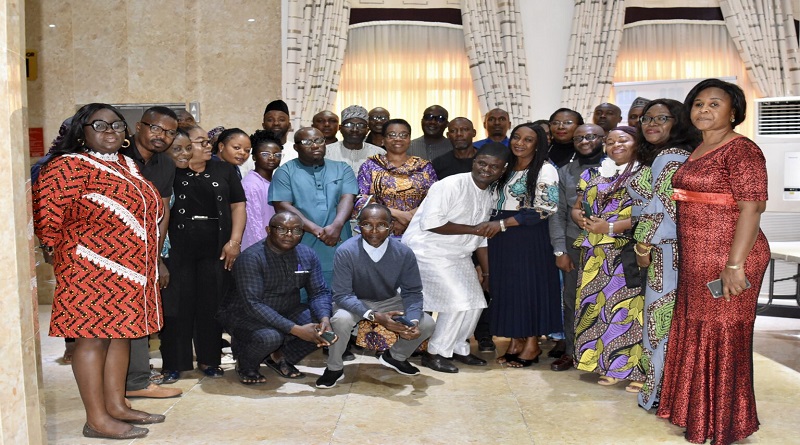Stakeholders seek stand-alone Sanitation and Hygiene Policy
Stakeholders in the water, environment and health sector have called for a standard stand-alone Sanitation and Hygiene Policy to address the poor sanitation situation in the country.
The stakeholders made this submission at the Validation Meeting on the Situation Assessment of Sanitation and Hygiene Policies at the National Level on Wednesday in Abuja.
The News Agency of Nigeria (NAN) reports that Fatoa and Associates Nigeria Limited, was engaged by WaterAid Nigeria to carry out a review of existing sanitation policies at the national level.
Mr Kabiru Abass, Technical Expert of the organisation, said there was the need to review the current national Water, Sanitation and Hygiene (WASH) policy to be in tune with current realities.
Abass said that many policies from years back had prioritised the provision of water supply, thereby relegating the crucial role of scaling up sanitation and hygiene.
He said sanitation interventions ought to be done in an integrated manner so as to gain traction and promote sustainable hygiene practices in the country.
“We recommend a standard and standalone sanitation and hygiene policy, we also recommend a review of the current National WASH policy 2000 to ensure that it aligns to all African Sanitation Policy core elements, other cross cutting issues.
“We need to incorporate climate change into sanitation and hygiene policies as well as emergency preparedness plans so as to prevent casualties in the future,” he said.
He said a multi-disciplinary and inter-ministerial sanitation policy review committee should be established to coordinate the process of reviewing and developing the sanitation policy.
Abass said there should also be a holistic sanitation and hygiene sub-sector funding mechanism in the reviewed sanitation policy, saying it should also elaborate on the roles of civil society organisations.
The technical expert however called for renewed collaboration between all stakeholders so as to ensure that when the policies were formulated, implementation would be beneficial for the people.
Earlier, Mrs Elizabeth Ugoh, Director, Water Quality Control and Sanitation, Federal Ministry of Water Resources and Sanitation, said the report being validated aligned with the objectives of the African Sanitation Policy Guidelines (ASPG).
Ugoh said it was critical to acknowledge the absence of a national, clear, coherent and stand-alone sanitation sector policy framework, saying this was a huge challenge.
“This lacuna has given rise to numerous issues, including overlapping functions, conflicting interventions, ineffective resource deployment, and inadequate monitoring, evaluation, and reporting.
“A stand-alone sanitation policy is good for Nigeria, Because when you talk of sanitation, you talk water and sanitation, for instance, look at our WASH accounts in Nigeria, there’s so much funding going into water, sanitation and hygiene is suffering.
“And so if we have a stand-alone policy, this will help also to attract not just the government budgetary process, to bring in money into sanitation, donors will also see why we need to have more funding and be able to achieve good results in sanitation,” she said.
The director said the validation meeting was a critical milestone in the journey towards transforming Sanitation and Hygiene practices in Nigeria.
She added that Nigeria needed to get it right when it comes to sanitation, saying a lot of things depended on it especially in the lives of most vulnerable.
Mr Nanpet Chuktu, Head of WASH, WaterAid Nigeria, said the activity was one of the organisation’s pillar in strengthening the system for multi-sectoral coordination and collaboration.
Chuktu said the recommendations from the committee for a stand-alone policy, would allow all other phases of sanitation and hygiene to be considered.
“They are not jettisoning the old thing, but they are saying that if we have one policy that addresses sanitation and hygiene, we will be able to pick unique issues.
“We see these as important because it will strengthen the sector; it will contribute to the National Action Plan, which is revitalising the sector; If you have the government to align budget, we would see a reduction in duplicity,’’ he said.
NAN reports that the African Ministerial Council on Water(AMCOW) had developed the ASPG for member states to develop, review, and implement national sanitation and hygiene policies.
It provides guidance to African governments to enhance or develop a clear and comprehensive sanitation policy that will pave the way for the development and implementation of large-scale national sanitation programmes.
By Tosin Kolade




